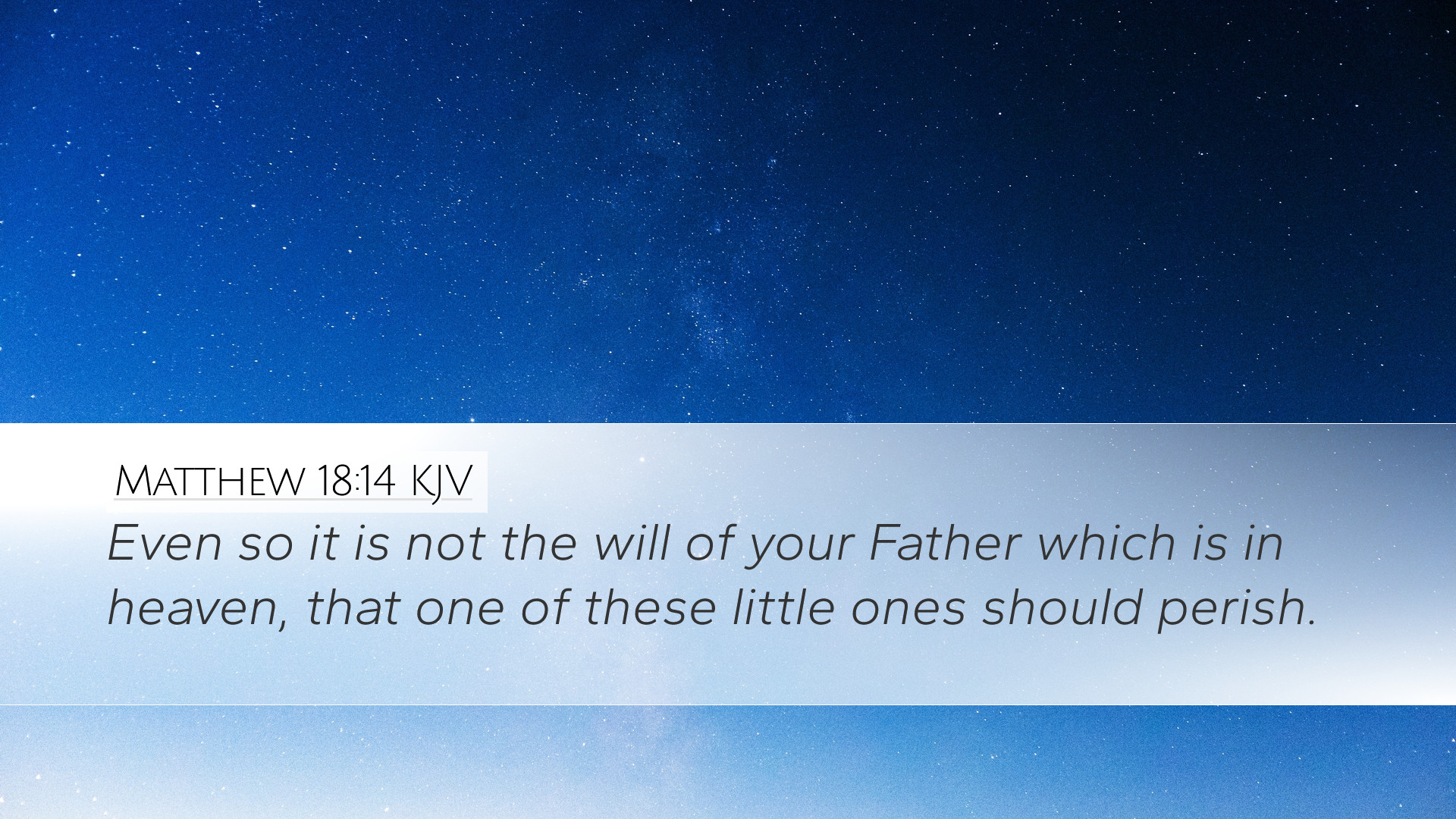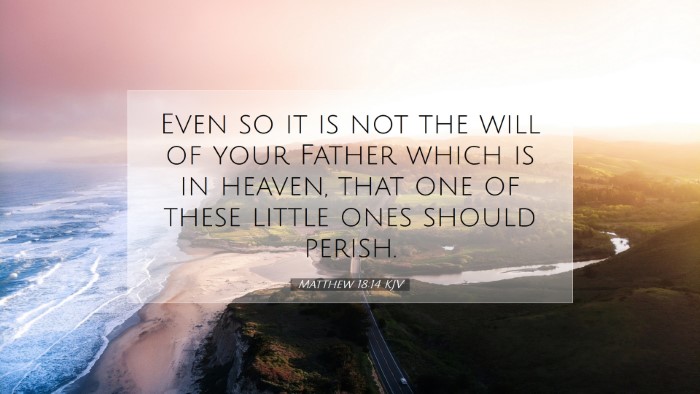Commentary on Matthew 18:14
Bible Verse: "Even so it is not the will of your Father which is in heaven, that one of these little ones should perish."
Introduction
This verse finds its place in a critical passage that emphasizes the value of humility, the care for the lost, and the heart of God for His children. Matthew 18:14 serves as a culminating thought in Jesus' discourse on the importance of each individual in the Kingdom of Heaven, especially focusing on the "little ones," a term that signifies not only children but also the vulnerable and needy believers.
Theological Significance
This verse underscores several theological truths:
- The Nature of God’s Will: The verse affirms that God's desire is for none of the vulnerable to perish. This highlights God's compassionate nature and His active will against the loss of the innocent.
- The Inclusiveness of Salvation: This scripture reassures us of the inclusive scope of salvation. God desires that all come to Him, regardless of their status or vulnerability, indicating His infinite grace and mercy.
- The Importance of the Individual: Every individual is cherished in God's sight. This notion transforms the understanding of community and personal value in the Kingdom of Heaven.
Insights from Commentators
Matthew Henry's Commentary
Henry highlights the essence of Christian love and the responsibility believers have to care for each other, particularly those who are weak or lead astray. He interprets "little ones" as either literal children or humble believers, suggesting that God’s will involves protecting and nurturing these individuals. Henry emphasizes that God’s compassion is profoundly reflected in His desire for the weak to be preserved and not lead to spiritual death.
Albert Barnes' Notes on the Bible
Barnes elaborates on the metaphor of perishing, which extends beyond physical death to both spiritual decline and eternal separation from God. He reads this verse in the context of pastoral care, encouraging leaders to take heed and provide for the spiritual and moral upbringing of their congregants, especially the vulnerable. The overarching theme in Barnes' interpretation deals with the church's responsibility to safeguard its members, resonating with the broader mission of reconciliation and discipleship.
Adam Clarke's Commentary
Clarke presents a careful examination of the term 'little ones' and studies the implications of their value in the eyes of God. He connects this verse to the wider narrative of the chapter, arguing that believers must model humility and care, akin to the characteristics of the Father. Clarke emphasizes that this care is not merely reactive but should reflect proactive efforts in discipleship and compassion. He views the warning against losing 'one' as a call to diligent, nurturing leadership within the body of Christ.
Practical Applications
This verse invites reflection and action among pastors, theologians, and students of the Word:
- Pastoral Responsibility: Pastors are called to foster an environment where all members, especially the vulnerable, feel valued and cared for, to ensure none are lost.
- Community Engagement: Faith communities should actively seek out 'little ones' both inside and outside their walls, emphasizing outreach and inclusive ministry.
- Personal Reflection: Each believer is prompted to reflect on their role within the community, assessing whether they are contributing to the spiritual welfare of those around them.
Conclusion
Matthew 18:14 encapsulates profound truths about God’s nature, the weight of individual lives, and the responsibility that lies within the church. It calls for an active, loving response that cares for others in their journey of faith. As we reflect on this verse, may we continually seek to embody the heart of the Father, ensuring that in our communities, none of the 'little ones' are left behind.


